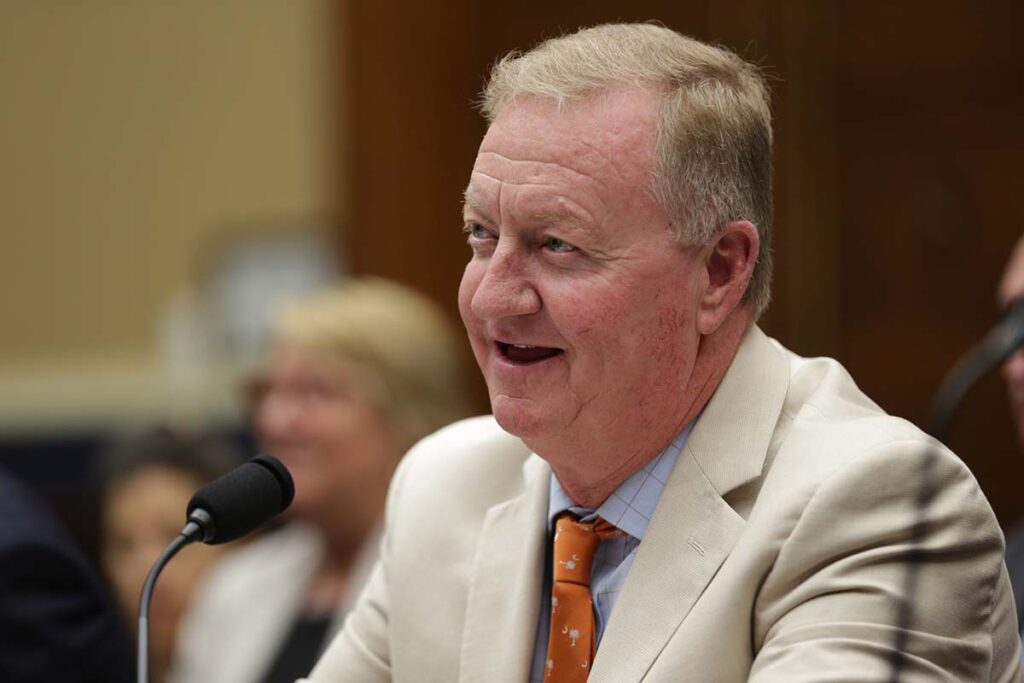
Americans face dangerous, economically disruptive power outages if the nation can’t overcome threats to reliable electricity, the CEO of a South Carolina electric cooperative warned a House panel Wednesday.
“Simply put, if we fail to act on these reliability challenges, we will struggle to keep up,” Bob Paulling, CEO of Lexington-based Mid-Carolina Electric Cooperative, told the House Energy and Commerce Subcommittee on Energy, Climate and Grid Security at a hearing on reliability.
“Blackouts will become a routine part of our lives, and jobs and industry will flee not only South Carolina, but the country.”
South Carolina faced rolling blackouts last December as unusually cold temperatures pushed the demand for electricity to record highs, straining power grids and leaving hundreds of thousands of consumers without heat, Paulling said.
“Fortunately for Mid-Carolina Electric members, there were no rolling blackouts at our co-op,” he said. “But we may not be so lucky the next time.”
Paulling reinforced NRECA’s message on the five biggest challenges threatening reliability: the increasing electrification of the economy; the disorderly retirement of power plants that run on fossil fuel; a permitting process that costs too much and takes too long; supply chain delays; and problems obtaining natural gas.
South Carolina has been a leader in helping to electrify the U.S. economy, bringing in a host of economic development projects tied to the production of electric vehicles, Paulling said.
“Those projects have brought thousands of high-paying jobs to our state, including to rural, economically depressed areas that have waited decades for this kind of opportunity,” he said. “But these plants also require large amounts of electricity, and we must be ready to serve them.”
South Carolina desperately needs more electricity and more options for producing it as the nation’s third-fastest-growing state works to meet the skyrocketing demand for power, Paulling said.
“In addition to building new power plants, we also need to preserve the existing generation fleet, no matter the fuel source, until adequate replacements and reserves are in place,” he said.
The permitting process for electric co-ops to obtain federal approval for infrastructure projects also must be streamlined, Paulling said.
“A good example of permitting issues unnecessarily prolonging needed improvements in South Carolina is Central Electric Power Cooperative’s attempts to upgrade overloaded infrastructure in the areas surrounding the town of McClellanville,” he said.
“Efforts by the local distribution cooperative and Central to build a needed new transmission line has stalled for nearly two decades in part due to the complicated federal regulatory process and the lack of required coordination and streamlining among federal agencies.”
The international supply chain delays that began during the COVID-19 pandemic are continuing to stall badly needed improvements at electric co-ops, he said.
“At Mid-Carolina Electric, we have been trying to build one single substation for over two years,” Paulling said. “We needed it to be energized this past summer to relieve another substation that is at maximum capacity. We are still waiting on the high-side breakers for that station, and the delivery dates keep changing. We hope to have it energized before the winter peak.”
The availability of natural gas for power plants has been threatened by extreme weather events such as the frigid temperatures across South Carolina last December, he said. More than a quarter of the state’s power comes from natural gas.
“The sick and the elderly cannot be made to endure days of intense South Carolina heat without air conditioning or nights of extreme cold without heating,” Paulling said. “As Winter Storm Uri in Texas taught us just two years ago, people will die if we can’t reliably deliver the electricity they need.”
Erin Kelly is a staff writer for NRECA.